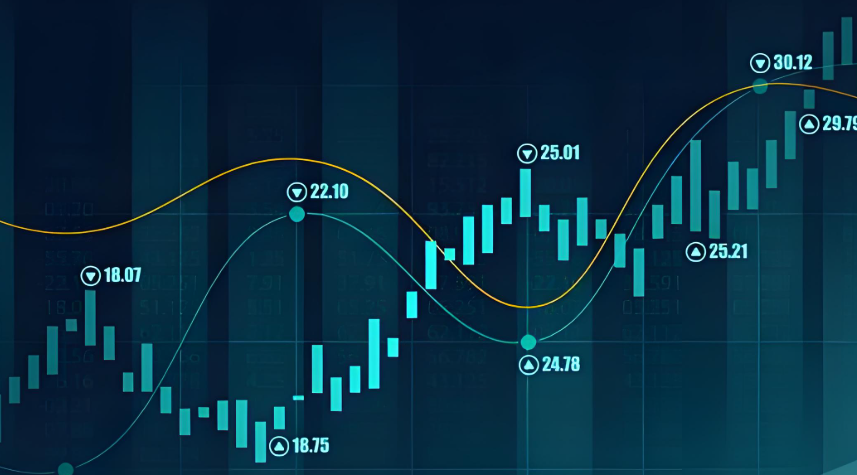Bank of Japan Signals Interest Rate Hike
Advertisements
The subtle dance of monetary policy in Japan is entering a crucial juncture as the Bank of Japan (BoJ) navigates a landscape rife with economic uncertainty. In recent weeks, the central bank has demonstrated a clear intention to adjust interest rates, signaling potential hikes that have sent ripples through global markets. But the resulting conversation reveals a deeper concern among policymakers about whether they can effectively manage this transition without destabilizing an already fragile economy.
In a strategic shift that raised eyebrows, the BoJ's leadership signaled expectations for interest rate rises as early as last week. This was a departure from their previous stance in December, where investors were caught by surprise when interest rates were left unchanged, only to be followed by an abrupt sign of potential tightening. Such mixed messages created a wave of confusion among analysts and investors. Furthermore, the implications of this could be broader than just Japan, affecting international markets as they hinge on Tokyo's decisions.
The hesitance of BoJ officials stems from their fears of being too closely tethered to market expectations, which can shift with alarming speed. Analysts closely watching the central bank's movements have detected a prevailing sense of cautiousness. There exists an overarching fear that if rates are raised too quickly, it might stifle growth rather than encourage a robust economic recovery. One can recall the delicate balance maintained during earlier economic upheavals, where too aggressive a move led the economy to stumble into recession.
The backdrop of this situation is characterized by fluctuating global economic conditions, particularly how they interact with Japan's internal market. For instance, the BoJ's December communication clumsily caught the market off guard, and the comments made by Governor Kazuo Ueda in the aftermath served to caution against sudden rate movements. The uncertainty within Ueda's remarks reflected the broader uncertain economic climate, particularly in the United States where tighter fiscal policies have become a growing concern. This adds layers of complexity to Japan's decision-making environment.

In addressing the probability of future rate increases, Japan's policymakers have become increasingly aware of the fine line they must tread. They are faced with the dilemma of ensuring that any hikes do not suppress consumption power within households already grappling with rising living costs. For example, while salaries have shown some resilience, the broader impact on consumer spending remains a critical variable. Consumers in Japan have been shown to be sensitive to price changes, and if wages do not keep pace with inflation, the repercussions for the domestic economy could be dire.
During a series of discussions, prominent economists have echoed concerns over the necessity for the BoJ to display greater flexibility in policy signaling. Such flexibility could serve as an advantage in maintaining economic stability while attempting to reinforce the credibility of its monetary framework. Economic theorists posit that with an adjustment period between policy changes and their observable impacts, the BoJ must treat each interest rate adjustment with caution, allowing sufficient time to gauge the economic response thoroughly.
Certainly, it has not been an easy road. With each policy decision, a panoply of questions emerges: Where should interest rates settle? What constitutes a neutral stance in a climate shaped by unpredictable global forces? To further complicate matters, the ongoing volatility in international trade, spurred by geopolitical tensions, looms large. The U.S.'s stance on tariffs, particularly against economic giants like China, indirectly impacts Japan, which heavily relies on exports to fuel its economic engine.
One can draw parallels with past experiences in other economies, where untethering from a low-interest regime has proved challenging. Take the case of the United States Federal Reserve's gradual increases aimed at stabilizing their post-recession recovery; the BoJ is now in a similar situation, balancing the necessity for growth with the risks of inflation. As they enhance their communication strategies, the BoJ must avoid creating speculative bubbles within the market that can lead to abrupt corrections.
The BoJ's recent strategies, which include cautious signaling of future rate adjustments, are intended to alleviate any surprises that could lead to market turmoil. However, while the institution has managed to raise interest rates to their highest level in 17 years, analysts express concerns that this approach could undermine the foundation of trust between the central bank and the market over time. Such a situation perhaps reflects not just a tactical maneuver but a broader philosophical debate about the role of central banks in modern economies.
Moreover, as Governor Ueda's comments indicate, the prevailing sentiment within the central bank is that they must recalibrate their long-term goals against the immediate pressures of financial management. The risk is real: they could easily find themselves constrained by the very policies intended to help them navigate the intricate economic landscape. Ueda's insistence on collaboration within the policymaking committee, skillfully balancing dissenting opinions while striving for consensus, remains a focal point.
In summary, Japan's monetary navigation will undoubtedly continue to be a closely watched spectacle as both investors and policymakers weigh the potential for growth against the risks of inflation. As the landscape shifts, the BoJ’s ability to maintain its independence and credibility while managing market expectations could remain the linchpin of its future success. With economic indicators poised to guide their pathway, the road ahead is riddled with uncertainties, yet fraught with opportunities for innovation in fiscal policy.